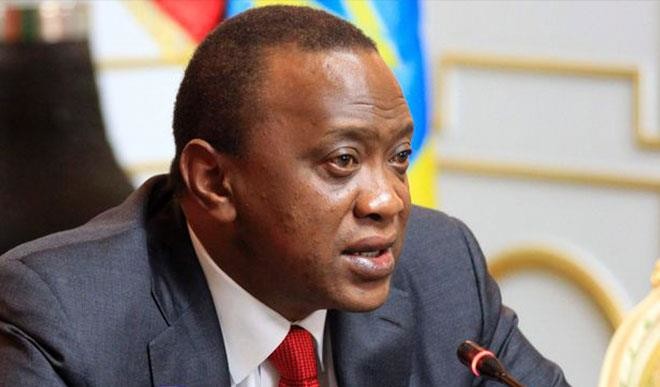
There is so much happening here that I decided this week to poke my nose into the affairs of another country. Journalists call this Afghanistanism. So, to Kenya we go.
Fifty-four million Kenyans went to the polls on August 8 to either re-elect Uhuru Kenyatta or elect Raila Odinga as the country’s new president. They elected Kenyatta. Odinga challenged Kenyatta’s win, alleging that widespread irregularities denied him the victory he merited.
On September 1, the supreme court agreed with him. It ruled that it found sufficient legal grounds to nullify the election. Their lordships ruled that Odinga lost because of the fraudulent conduct of the election and deserved another fair shot at the presidency. It ordered the conduct of a new one within 60 days in accordance with the electoral law. It was a surprise verdict in an African country. Apparently, Odinga did not whine because he was a bad loser. He whined because he felt truly cheated and the supreme court verdict backed him.
And so Kenyans went back to the polls on October 28. But again sweet victory eluded Odinga. His country men and women again gave the thumbs up to Kenyatta. Odinga immediately rejected the result of the election, calling it “a sham.” He issued a statement saying, “This election must not stand. If allowed to stand it will make a complete mockery of elections” and warned that “elections will become coronation rituals.” This time, the supreme court disagreed with him. It has up held Kenyatta’s re-election.
Two weeks to the re-run election, Odinga denied himself the chance to prove himself before the electorate. He believed that the re-run election would still go against him because the reforms he pressed for in the electoral system had not been effected by the electoral commission. He decided to pull out of the contest. At least one electoral commissioner too saw that without those reforms, Odinga stood no chance in the re-run election. The electoral commission ignored Odinga’s protest and went ahead with the election without him. It was interesting that contrary to what everyone feared, the conduct of the re-run election was peaceful. But make no mistake, the country and the rest of Africa are sitting on edge.
This is a power struggle between the two sons of the country’s late leading politicians. Uhuru Kenyatta is the son of the father of the country’s independence struggle, Jomo Kenyatta, who became the first prime minister and later president from 1964 to 1978. Raila Odinga is the son of Jaramoge Oginga Odinga, Kenyatta’s first vice-president.
Kenyatta has been president since 2013. This would be his second term in office. Odinga has promised to make the country ungovernable for the president. Kenya faces the very grim prospects of descending into chaos and anarchy once more. As you read this, this unhappy development is rapidly taking the country to the precipice with Odinga and his supporters beating the drums of civil disobedience. Unless they pull back and turn the disagreeable sounds of the drums of civil disobedience into agreeable sounds of peace and political realism, the country might go up in flames again.
Kenyatta and Odinga are very important politicians in their own right but neither of them is bigger than the country itself. That simple truth should force each man to see that his ambition to become president should never be at the expense of the peace and unity of the country itself. Given the generally crooked nature of the conduct of elections in Africa, it is quite possible that the presidential election was far from being free and fair. It is almost an acceptable political convention in Africa that incumbents are not supposed to lose re-elections. It grates on our democratic nerves but it happens again and again. It is both foolish and futile to press for perfection in a system that is strange to perfection. Whatever Odinga and the rest of us may make of his condemnation and protests, the people have spoken twice on his political fate. This time the supreme court, the final arbiter in such delicate matters, has thrown its weight behind the people’s decision. As the late Chief Moshood Abiola would say, shikena, finish.
Most Kenyans would, I am sure, find the prospects of a repeat of what happened in 2007 unbearably horrendous. When Mwai Kibaki, was declared winner of that year’s presidential election, the opposition took to the streets in protest alleging election fraud. At least 1,200 people were killed and 600,000 wounded in the protests that rocked the country for weeks. Those were the official figures. They do not usually tell the full ugly truth. The true figures might have been much higher but that is merely academic now.
The rest of Africa can ignore what is happening in Kenya and at best hope and pray that things do not get much worse with the isolated tyre burning on the streets of Nairobi turning into mindless killings by the foot soldiers of political violence. Neither hope nor prayer would do the magic. If African leaders somnolently leave the Kenyans to their own political devices, they would be abdicating their responsibility in helping to nurture democracy on the continent.
Yes, the election, warts and all, are internal affairs of Kenya. And yes, only they can resolve the crisis arising from it. Still, they need some help to put out the fire before it turns into a conflagration. Let us not forget that an electoral hiccup, and I am putting it mildly, in an African country takes the continent back two or three steps into the political cesspit of its recent past. What the Kenyans make of their presidential election would either result in a possible upset in the continent’s tortuous democratic journey or help to smoothen the path of participatory democracy. I pray for the latter.

 Join Daily Trust WhatsApp Community For Quick Access To News and Happenings Around You.
Join Daily Trust WhatsApp Community For Quick Access To News and Happenings Around You.


